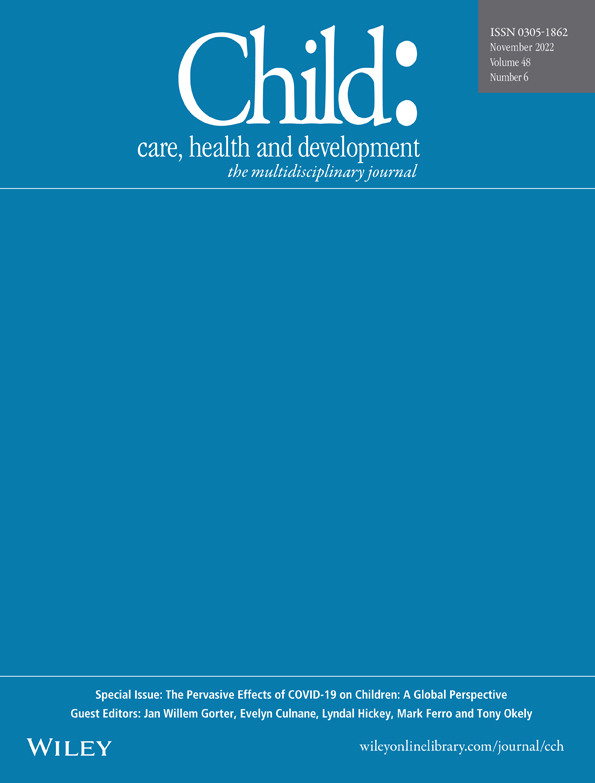The impact of the COVID-19 pandemic on young children and their caregivers
Abstract
Background
The COVID-19 pandemic has adversely impacted child development and the well-being of caregivers, and such evidence ought to be used to inform public policy decisions. This study investigated the impact of COVID-19 on children's behaviours and their caregivers' needs.
Methods
A cross-sectional study was conducted with 153 caregivers of children (from 0 to 5 years old) from three public daycare centres in Brazil. The Nurturing Care Framework of the World Health Organization was used to guide the assessment of caregivers' needs. Online data collection using a questionnaire was conducted from June to July 2020.
Results
The COVID-19 pandemic increased stressors such as low family income, unemployment, sadness, depression and anxiety of caregivers. Their most commonly reported needs were related to offering age-appropriate playful activities (49.7%), organizing the care routine of children at home (41.8%) and educating children when they do something wrong (39.9%). Additionally, the results showed that misbehaviour, aggressiveness and agitation occurred more frequently among preschoolers than infants or toddlers (p ≤ 0.05).
Conclusion
During the COVID-19 pandemic, public policies should provide mental health support to caregivers, as well as information about security, safety and early learning opportunities for childcare at home.
Open Research
DATA AVAILABILITY STATEMENT
The data that support the findings of this study are available from the corresponding author upon reasonable request.




